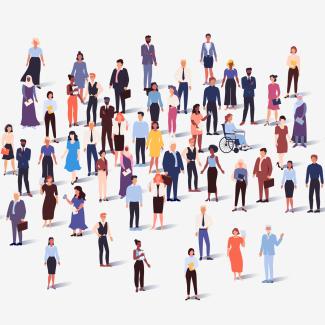Erol Akçay, an associate professor of biology, and Marco Smolla, a former postdoc in the Akçay lab and now a researcher at the Max Planck Institute for Evolutionary Anthropology, wanted to understand how social networks and cumulative culture—the breadth of and proficiency in socially learned skills—co-evolve. Using a model where individuals learn new skills from their social connections by being exposed to it multiple times, the researchers discovered that what’s best for an individual may directly conflict with what’s best for the larger group. Specifically, they determined that “disconnection,” or fewer social connections, may benefit an individual, but highly connected groups succeed most. They published their findings in Evolutionary Human Sciences.

